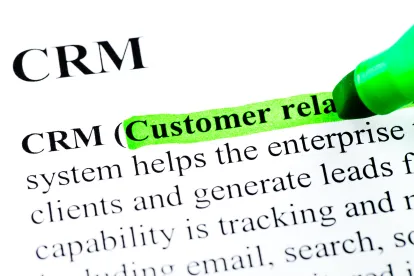During the dog days of summer, as law firms begin preparing for the fall and winter seasons, there is no better time to dive into a crash course on contact management to help with CRM clean up.
This knowledge holds value not only for the incoming wave of legal talents but also for seasoned attorneys who seek to enrich their practice and client services.
In this edition of CLIENTSFirst Consulting’s CRM Summer School, we go over 12 steps law firms, experienced attorneys and new associates can follow to clean their contact lists and set themselves up for marketing and business development success:
- Data Audit: Conduct a thorough audit of your CRM data. Identify and remove duplicate or outdated records. Check for incomplete or inaccurate information and update it accordingly.
- Segmentation Review: Review your contact segmentation. Ensure that contacts are appropriately categorized based on attributes such as industry, location, lead status or customer type. Adjust segments as needed for more targeted marketing and communication.
- Email Verification: Run an email verification process to identify and remove invalid or bounced email addresses. This helps maintain a healthy email deliverability rate.
- Consent and Permissions: Review your contact’s consent and permissions settings to ensure compliance with data protection regulations. Remove contacts who have not given consent or have opted out of communication.
- Engagement Analysis: Analyze engagement metrics for each contact. Identify contacts who haven’t engaged with your emails or content for a long time. Consider re-engagement campaigns or remove inactive contacts to streamline your database.
- Merge and Consolidate: If you have multiple records for the same contact, merge them to create a single, comprehensive profile. This reduces clutter and enhances data accuracy.
- Update Lead Scores: If your CRM uses lead scoring, review and update lead scores based on recent interactions and behaviors. This helps prioritize high-value leads.
- Cleanup Custom Fields: Remove any unnecessary custom fields in your CRM to simplify data entry and reporting. Reorganize fields if needed for better data organization.
- Integrate Data Sources: If you have data from different sources, consider integrating them into your CRM for a more holistic view of your contacts.
- Automate Data Cleanup: Implement automation tools and workflows to regularly clean up and update CRM data. This ensures data accuracy and consistency throughout the year.
- Employee Training: Provide a refresher training to employees on proper data entry procedures and data management best practices. Consistency in data entry is crucial for a clean CRM.
- Backup Data: Before making any major changes or deletions, ensure you have a backup of your CRM data to prevent accidental data loss.
By cleaning up your CRM and contacts during the summer, you can set the foundation for strong data quality, better data management and more effective client interactions for the rest of the year and beyond.
A clean CRM enables your team to focus on meaningful engagement and relationship building, which can ultimately lead to more engagement with client and prospects, more visibility and business growth.




 />i
/>i

